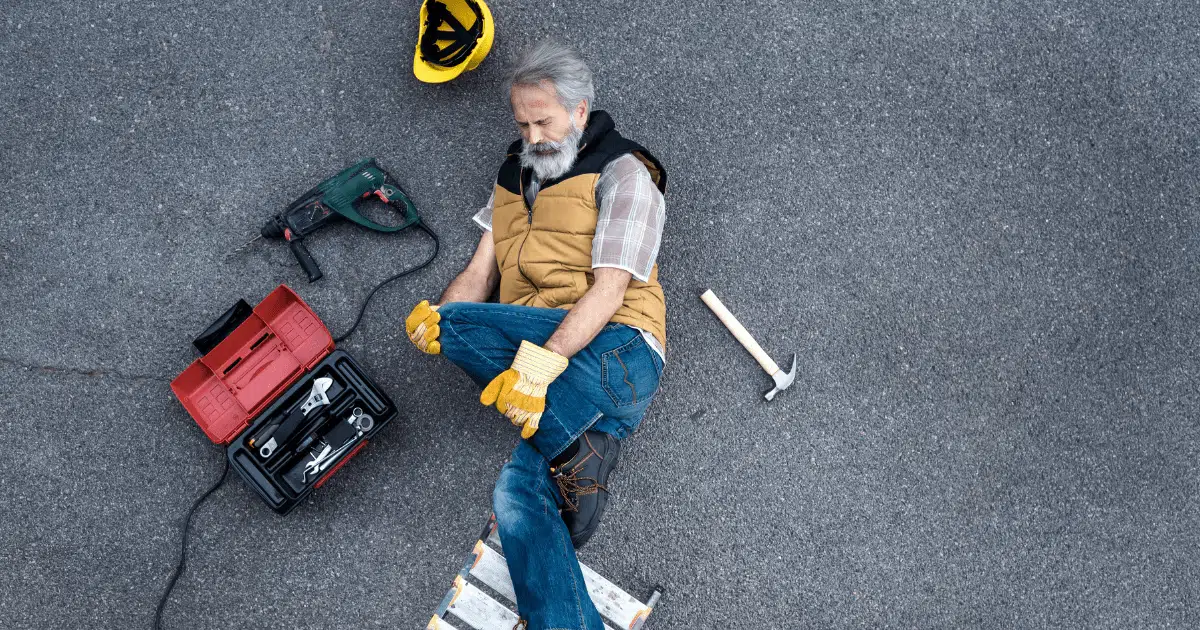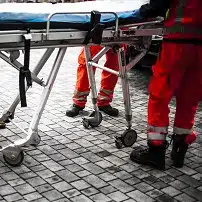You might frequently work with your hands and need to wear leather gloves. When you do not wear gloves, your hands are far more prone to suffering significant injuries. Many different types of workplace accidents can cause degloving injuries. Those who work in industrial settings are more prone to these types of injuries.
Losing an entire layer of skin over an extended portion of any body part is extremely painful. A degloving injury could also become dangerously infected, which could could lead to life-threatening sepsis. The healing process is generally long and painful, and it might involve several surgeries.
Degloving, also called avulsion, is a medical term that describes the detachment of all three layers of the skin. Avulsions are severe and traumatic, and they are much worse than lacerations and similar wounds. An avulsion is not as severe as an amputation, but it could render the affected body part virtually useless for a long period of time.
With a degloving injury, the skin separates from a part of the body. Degloving could affect your scalp, face, torso, limbs, or appendages. The injury usually produces a lot of blood as well as extreme pain, and it will require immediate medical attention. Infection is a serious and potentially deadly consequence of a degloving accident.
What Are the Different Types of Degloving Injuries?
When a degloving injury occurs, either the skin gets removed or it is torn but remains in place. An open degloving injury generally refers to a large abrasion that removed the skin. A severe workplace construction accident might cause a worker to suffer an open wound over an extensive part of the body.
There are many different causes of degloving injuries, but the treatments are similar. Multiple skin grafts and close monitoring of possible infections often are part of the treatment process. Since many surgeries are usually needed, the cost to treat an open degloving injury can be very high.
A closed degloving injury does not remove the skin, but it does separate it from the body. Since the skin is still relatively in place, this type of degloving injury often does not need a skin graft. A closed degloving injury could be relatively minor. A large bruise might be the only indicator of a closed degloving injury, but more serious cases will be much more obvious.
What Are Common Degloving Accidents?
Many degloving accidents happen in the workplace, especially in settings where heavy equipment is frequently used. Hand injuries are the most common types of degloving injuries and could occur just about anywhere.
Pinch and nip points are common is a variety of workplaces. A restaurant could have tables that fold in the middle and might pinch a hand or fingers. A barber shop might have a seat that could pinch or crush a hand. A grocery stocker might crush a hand with a moving cart weighed down with stock.
Many degloving injuries occur in industrial settings. The oil and gas industry leads all others with the most degloving injuries and hand injuries, which account for about half of all workplace injuries among oil and gas workers. The Occupational Safety and Health Administration (OSHA) says the most common ways in which workers suffer degloving injuries include:
- Extreme heat or cold.
- Getting caught between two objects.
- Exposure to biological or infectious agents.
- Defective equipment or machinery.
- Contact with caustic chemicals.
One of the more overlooked degloving accidents involve rings. Whether the ring is a wedding band or a decorative piece, if it fits too tightly or gets caught on something, it could become a problem. A ring degloving accident usually happens when the ring gets caught in machinery or on something firm, like a chain-link fence.
Workers’ Compensation Coverage for Degloving Injuries
No matter the cause, when a degloving or another type of workplace injury happens, Workers’ Compensation should cover the costs. That includes the time you are off from work and the physical therapy that you will likely need to regain full use of the injured body part.
While you are out of work, Workers’ Compensation should pay your normal weekly salary or hourly pay, but at a reduced amount. You likely will receive about three-fourths of your normal pay. The reduced amount reflects the cost savings that you would receive for not having to commute to and from work.
Degloving injuries could be very costly to treat and cause an extended absence from work. Workers’ Compensation should pay for the medical costs, and you will likely need to see a specialist. You could be required to go through a physical examination with a company doctor whose general duty will be to ensure your injuries and their extent are genuine. In Delaware, you have the right to use your own doctor for all medical treatments, but your employer also has the right for you to see an employer-chosen doctor to confirm a diagnosis and treatment plan.
Potential Third-Party Liability for Degloving Injuries
While Workers’ Compensation should pay for all of your medical costs and most of your lost income, that does not mean you cannot pursue a claim against a third party. When you accept Workers’ Compensation, you forgo the right to sue your employer for damages. That does not extend to a vendor or other third parties.
If a vendor, contractor, or other third party caused your injury and created a dangerous condition due to negligence, you could press a claim. An experienced lawyer can help you make a viable claim against any liable vendor, contractor, or other third party.
Wilmington Workers’ Compensation Lawyers at Rhoades & Morrow Can Help You if You Were Injured in a Degloving Accident
A degloving accident could cause you to miss work for an extended period of time while you are healing. If you have a work-related degloving injury, our Wilmington Workers’ Compensation lawyers at Rhoades & Morrow can help you get the benefits you deserve. You can call us at (302) 427-9500 or contact us online to schedule a free consultation. Located in Wilmington, Bear, and Milford, Delaware, we serve clients throughout Middletown, Dover, Milford, Lewes, Rehoboth, Elsmere, and Seaford.





